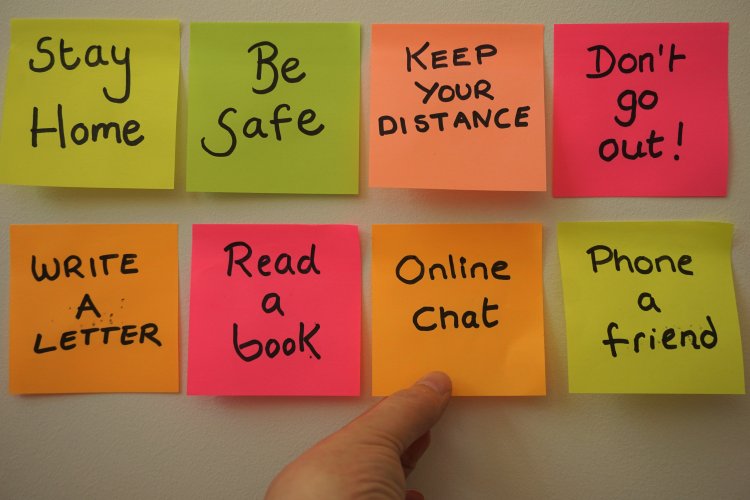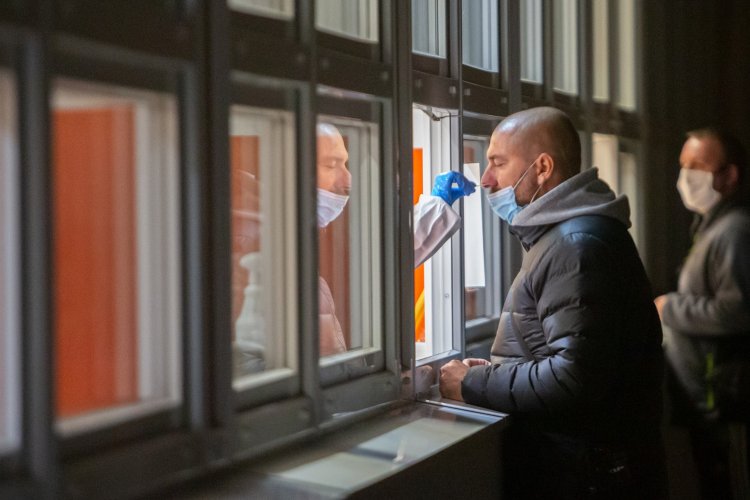What It's Really Like in a Beijing Quarantine Center
Through the course of the pandemic, perceptions of quarantine centers, aka fangcang yiyuan (方舱医院), has been blurry. By testing residents frequently and isolating positive cases or even the close contacts of Covid-19 patients, the government hopes to break the virus' chain of transmission.
The term fangcang, according to What's on Weibo, means 'square cabin,’ and it refers to a modular or prefabricated mobile cabin hospital. The concept of a makeshift hospital isn't exactly new in China, yet these purpose-built quarantine facilities have emerged as a novel public health concept during the Covid Crisis.
In China, fangcangs are large, temporary places for the isolation, treatment and disease monitoring of people. These Fangcangs serve to cut off the transmission of the virus within families and communities through quarantine.
As of now, the total number of quarantine facilities and their exact locations is not clear, nor is it apparent how many people are currently in these centers and under what circumstances they are admitted there.
Currently there are at least four fangcangs that we know of: One attached to Ditan Hospital; one next to Xiaotangshan Hospital; a third at the China International Exhibition Center in Shunyi; and a fourth in Haidian that we'll hear more about in this article. There are likely others in town, but their specific whereabouts are unknown to us right now.
In Ditan and Xiaotangshan patients are put into individual rooms usually equipped with two beds and a bathroom with a sink, shower and toilet. In some cases these are single occupancy, in some cases you are with a roommate.
The Shunyi Convention Center is more of an open layout with cubicles containing beds and a small cabinet, set in a large open space and with shared bathrooms.
Who goes where is currently a mystery to us; however it seems the more severe your symptoms, the more likely you will be in one of the private rooms vs the large open convention center.
Thanks to Fran Hanshing, a long-term Beijing resident hailing from Chile, we were able to get a glimpse of life inside one of these facilities. Her experience is just one of many, and is not necessarily representative of all the places you could be sent in Beijing.
An Unexpected Call
Hanshing wasn't prepared at all when she was told she needed to be taken to a central quarantine place on a Sunday night.
On Oct 30, she received four phone calls. Healthcare workers had called to find out whom she had met with and where she had been to. After they learned she had been to a bank where a confirmed case had traveled, they informed her that she needed to be taken to a quarantine center because she was a close contact.
“My immediate reaction was: I had not tested positive. So, I was thinking to myself: Do I really need to go through this?”
When Hanshing broached this with the healthcare workers, they said it would be too much of a risk to leave her where she was.
After spending two hours packing, Hanshing was taken to a car that was heading to an unknown place. “I was obviously very scared at that time as the car was covered in plastic. There were only two other people in the car. I felt totally isolated from the rest of the world at that moment.” She recalled.

Forty-five minutes later, before Hanshing was able to settle her emotions, the car stopped at a location that had facilities that looked like it would be able to house hundreds of patients. Using her GPS, she discovered she was near Fenghuangling in Haidian District
Once she arrived, she walked straight to the front desk to get herself registered for a night full of uncertainties.
Life in the Quarantine Facility
Much to her surprise, the actual conditions of the quarantine facility wasn't as bad as Hanshing imagined they would be. She breathed a sigh of relief when she was told she would be in a private room.

"When I found out that I was able to stay in a private room, it felt like a huge weight off my shoulders," Hanshing said.
“Don't get me wrong. I know I am not staying at a five-star hotel, but the living conditions far exceeded my expectations. There is a single bed that comes with clean sheet. I was able to browse through wifi. There is also a private bathroom and a TV. I can also take a shower," she continued.
Inside the room there is also a small desk, and meals are provided three times a day.
Hanshing would sometimes poke her head out of the windows, but all she could see was quarantine rooms and a glimpse of mountains in the distance.

Every day the meals would be delivered to her door, and since she was not allowed to go outside, one of the small highlights was letting in some fresh air every time she opened the door to get her food.

Hanshing also has food allergies. “I told them about my conditions and I was able to get green salads for that, which I was really happy about."
During her stay, Hanshing received more food than she could finish on her own.
“China is a big country, and I just feel like all this free food could have been given to people who are actually starving" Hanshing said.

An Emotional Whirlwind
Although Hanshing was fine with the conditions, quarantine still took a huge toll on her emotions. To battle these feelings, she kept in touch with her husband daily, who was fortunate enough to have avoided quarantine. She also tried to keep herself as occupied as she could with work so that her mind would not wander idly.

“I think the hardest part of this experience is that I felt punished for a mistake I hadn't made the entire time" she says. “My friend was trying to send me a package during that time and I was not allowed to receive it. I know the quarantine came with nice facilities, but I wish my emotional needs were also taken care of.”

In her case, Hanshing was able to shorten her quarantine period from seven to five days after repeated calls made to her embassy.
“It came as a surprise as one day I was just told I could leave earlier and I didn't have to sign any documents or anything. The next thing I knew: there was a car waiting for me to send me back to my home" she recalls.
Despite the experience, Hanshing still considers Beijing her second home. “I made Beijing my home 12 years ago. It has always been the place where I want to grow my business and build my professional career. I still love China and I have never considered leaving this country. I just wish one day the pandemic will be over soon!"
READ: New Inhalable Covid Vaccine Rolled Out, But Only In Certain Districts
Images courtesy of Fran Hanshing







